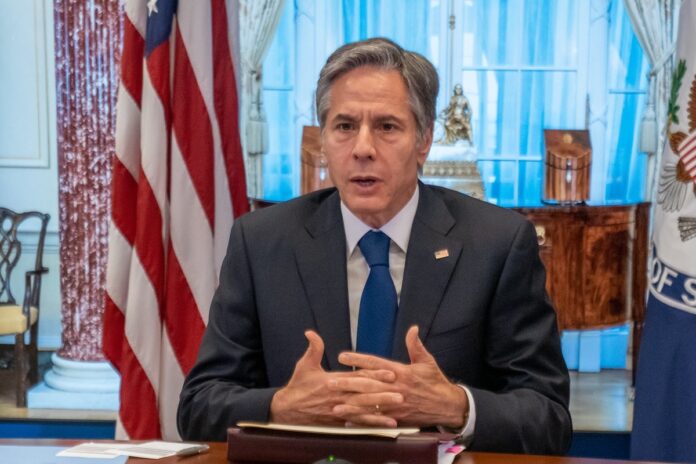WASHINGTON (Politico/Azatutyun) — Secretary of State Antony Blinken warned a small group of lawmakers last week that his department is tracking the possibility that Azerbaijan could soon invade Armenia, according to two people familiar with the conversation.
The call indicates the depth of concern in the administration about Azerbaijan’s operations against a breakaway region in the west of the country and the possibility of the conflict spreading.
Azerbaijani President Ilham Aliyev has previously called on Armenia to open a “corridor” along its southern border, linking mainland Azerbaijan to an exclave that borders Turkey and Iran. Aliyev has threatened to solve the issue “by force.”
In an October 3 phone call, lawmakers pressed Blinken on possible measures against Aliyev in response to his country’s invasion of the Nagorno-Karabakh region in September, the people said, who were granted anonymity to discuss the sensitive call.
Blinken responded that the State Department was looking at avenues to hold Azerbaijan accountable and isn’t planning to renew a long-standing waiver that allows the U.S. to provide military assistance to Baku. He added that State saw a possibility that Azerbaijan would invade southern Armenia in the coming weeks.
Still, Blinken expressed confidence about ongoing diplomatic talks between Armenia and Azerbaijan to the Democratic lawmakers, among them Representatives Nancy Pelosi and Anna Eshoo of California, and Frank Pallone of New Jersey.








